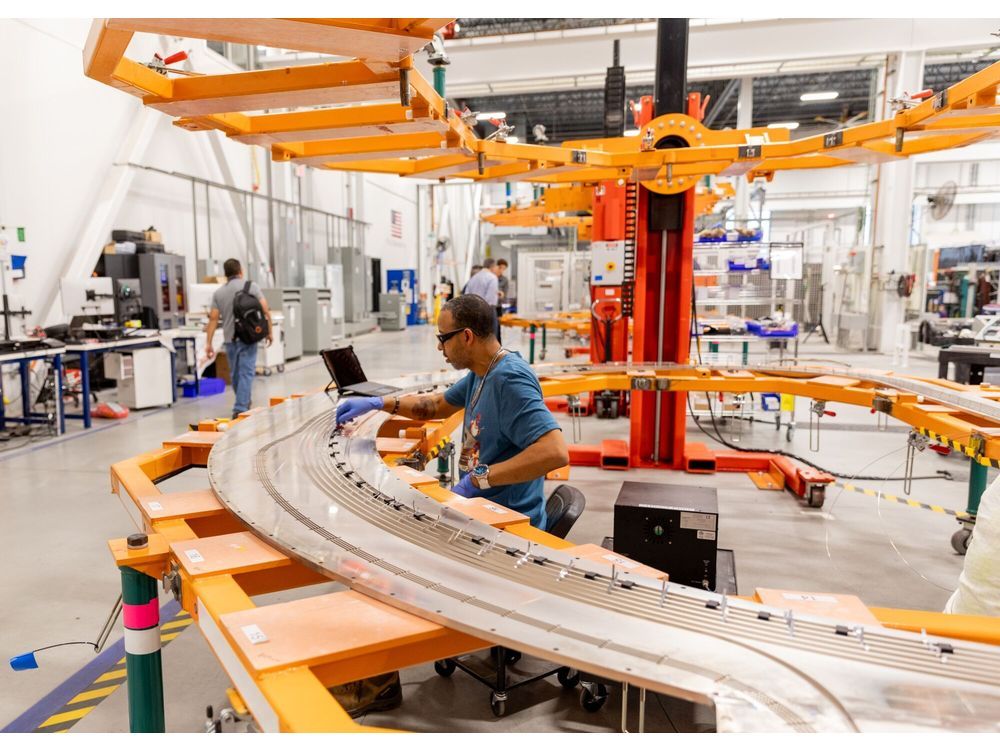Science
Commonwealth Fusion Aims to Rebrand Fusion Power, Avoids ‘Nuclear’

Commonwealth Fusion Systems is tackling significant challenges in the fusion energy sector, including complex physics and engineering hurdles. A key part of their strategy involves redefining public perception by moving away from the term “nuclear,” which is often associated with negative connotations. According to Bob Mumgaard, the company’s chief executive officer, the term is commonly linked to nuclear fission, which differs fundamentally from the fusion process they are developing.
Fusion involves merging smaller atoms to release energy, in contrast to fission, which generates energy by splitting larger atoms. Mumgaard emphasized the importance of distinguishing between the two processes. “The word ‘nuclear’ is shorthand for fission,” he stated. “And this isn’t fission.”
Investment and Progress in Fusion Technology
Commonwealth Fusion has emerged as a leader in the quest to replicate the energy-generating process that powers stars, aiming to produce a clean source of abundant carbon-free electricity. In August 2023, the company successfully raised $863 million, increasing its total funding to approximately $3 billion. Mumgaard anticipates achieving a significant milestone by late 2027, when they expect to develop a system that can generate more energy than is required to initiate a fusion reaction. He indicated that the plant is currently about 70% complete.
Additionally, Commonwealth Fusion is initiating work on a facility in Virginia, which could become the first commercial fusion power plant. Mumgaard disclosed that this project is between 5% and 10% finished.
Mumgaard is keen to clarify terminology, stating that the machines developed by his company should not be referred to as “reactors,” as this term traditionally pertains to fission power plants. While fusion technology has yet to be realized on a commercial scale, investments in the field have surged in recent years, partly due to the increasing demand for large-scale carbon-free energy solutions.
Advantages of Fusion Over Traditional Nuclear Power
The potential of commercial-scale fusion lies in its ability to provide substantial quantities of carbon-free power, making it an attractive option for investors, including those in data center construction. Successful implementation of fusion technology would also address many of the risks associated with conventional nuclear fission plants, such as the generation of toxic waste that remains hazardous for centuries, as well as the threats of meltdowns and radiation leaks.
Mumgaard emphasized that fusion does not present these concerns. “It really is a separate thing,” he explained, underscoring the differences between the two technologies.
This isn’t the first time a new energy technology has sought to distance itself from the nuclear label. Mumgaard drew a parallel to the evolution of the term “MRI machines,” which were once known as “nuclear magnetic resonance imaging” devices. The decision to drop the word “nuclear” was made to eliminate negative associations tied to nuclear fission and weaponry.
“Nuclear in that context, because of the connotations that the word ‘nuclear’ carries from fission and weapons, has nothing to do with an MRI machine,” he noted. “And we think that’s the same with fusion.”
As Commonwealth Fusion Systems continues to advance its innovative technology and reshape public perception, the company aims to lead the way in a promising new era of energy production.
-

 World4 months ago
World4 months agoScientists Unearth Ancient Antarctic Ice to Unlock Climate Secrets
-

 Politics2 days ago
Politics2 days agoSecwepemc First Nation Seeks Aboriginal Title Over Kamloops Area
-

 Entertainment4 months ago
Entertainment4 months agoTrump and McCormick to Announce $70 Billion Energy Investments
-

 Lifestyle4 months ago
Lifestyle4 months agoTransLink Launches Food Truck Program to Boost Revenue in Vancouver
-

 Science4 months ago
Science4 months agoFour Astronauts Return to Earth After International Space Station Mission
-

 Technology2 months ago
Technology2 months agoApple Notes Enhances Functionality with Markdown Support in macOS 26
-

 Top Stories4 weeks ago
Top Stories4 weeks agoUrgent Update: Fatal Crash on Highway 99 Claims Life of Pitt Meadows Man
-

 Sports4 months ago
Sports4 months agoSearch Underway for Missing Hunter Amid Hokkaido Bear Emergency
-

 Politics3 months ago
Politics3 months agoUkrainian Tennis Star Elina Svitolina Faces Death Threats Online
-

 Politics4 months ago
Politics4 months agoCarney Engages First Nations Leaders at Development Law Summit
-

 Technology4 months ago
Technology4 months agoFrosthaven Launches Early Access on July 31, 2025
-

 Top Stories2 weeks ago
Top Stories2 weeks agoFamily Remembers Beverley Rowbotham 25 Years After Murder









